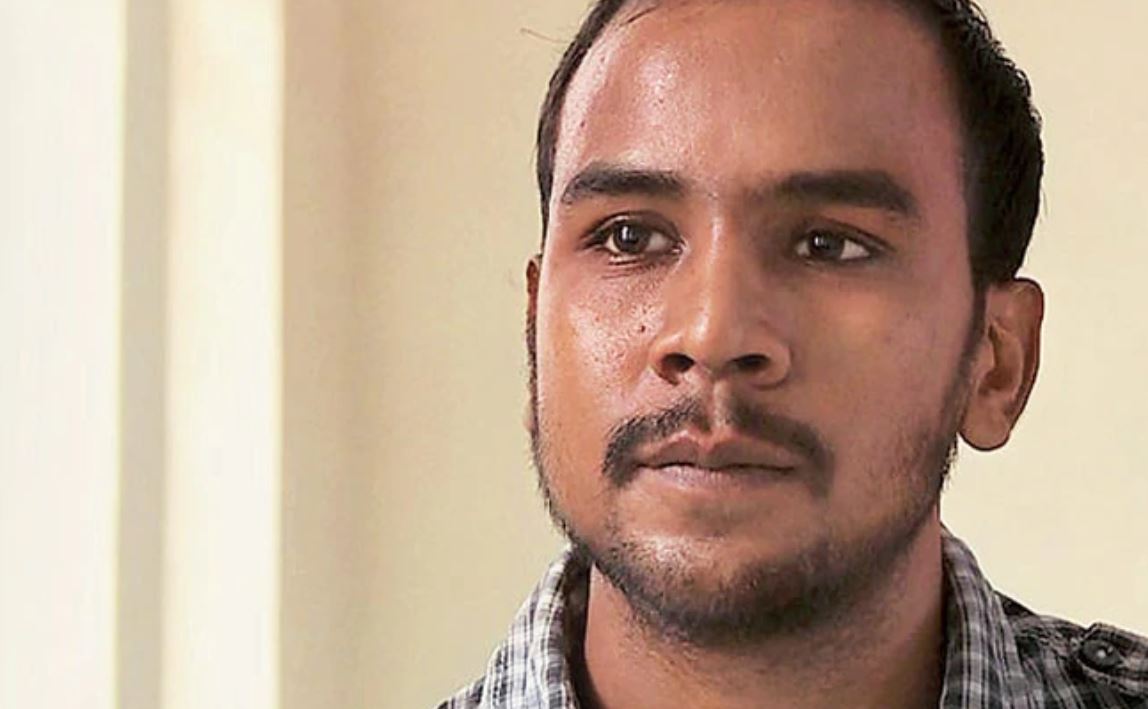
SC reserves verdict on Nirbhaya convict's plea, to be delivered Wednesday
The Supreme Court on Tuesday (January 28) reserved the verdict on a plea of one of the four death row convicts in the Nirbhaya gang-rape and murder case, challenging the rejection of his mercy petition by the President.

The Supreme Court on Tuesday (January 28) reserved the verdict on a plea of one of the four death row convicts in the Nirbhaya gang-rape and murder case, challenging the rejection of his mercy petition by the President.
A three-judge bench headed by Justice R Banumathi said that it will pronounce the verdict on Wednesday on convict Mukesh Kumar Singhs plea.
President Ram Nath Kovind had rejected the mercy petition of Mukesh on January 17.
The four death row convicts in the case are scheduled to be hanged on February 1.
The Centre on Tuesday sought dismissal of the plea of one of the four death row convicts in the Nirbhaya gang-rape and murder case against rejection of his mercy plea and said that being ill-treated in prison cannot be a ground for mercy to one who has committed such a heinous crime.
Solicitor General Tushar Mehta told a three-judge bench headed by Justice R Banumathi that the convict, Mukesh Kumar Singh, was not kept in solitary confinement as alleged and no ground of commutation has been made out.
Also Read: Nirbhaya case convict Mukesh’s plea should be top priority: CJI Bobde
Mehta told the bench, also comprising justices Ashok Bhushan and AS Bopanna, that the entire material was sent by the Ministry of Home Affairs to President for deciding mercy plea of Singh.
He also told the bench that the power of judicial review of the apex court is very limited in such cases and said the delay in deciding his mercy plea would have a dehumanising impact. President has to satisfy himself regarding pardon and not look into each procedure, Mehta told the bench adding that the President is not sitting in appeal against judgements of all courts in the case.
The top court questioned Singh as to how he can allege “non-application of mind” by the President in rejecting his mercy petition and claim that all facts were not placed before the President when he dealt with the mercy plea.
“How can you say that these facts were not placed before his excellency the President? How can you say that there was non-application of mind by the President,” the bench asked senior advocate Anjana Prakash.
When the convict’s counsel said that all facts were not placed before the President, Mehta told the bench that all the records, exhibits and the judgment in the case were placed before the President.
Singh alleged procedural lapses in dismissal of his mercy plea by the President. He said that certain supervening circumstances, including solitary confinement and procedural lapses, have been ignored while considering his mercy plea.
Also Read: Nirbhaya convict moves SC after President rejects mercy plea
His counsel contended that the executive is not sitting on the power of appeal but rather exercising constitutional duty, which is neither a matter of mercy nor grace. Prakash referred to judgements on death sentence and the power of the president to grant mercy.
He also told the court that the Presidents rejection of the mercy plea was on extraneous consideration as also mala fide, arbitrary and without materials. The bench was hearing Singhs plea against the dismissal of his mercy petition by President Ram Nath Kovind on January 17. He has sought an urgent hearing on his plea against the dismissal of the mercy plea.
The trial court has issued black warrants for the execution of all the four convicts — Mukesh, Pawan Gupta, Vinay Kumar Sharma and Akshay Kumar — at 6 am on February 1.
The 23-year-old physiotherapy intern, who came to be known as “Nirbhaya” (the fearless), was gang-raped and savagely assaulted on the night of December 16, 2012, in a moving bus in South Delhi. She died of her injuries a fortnight later in a Singapore hospital.

